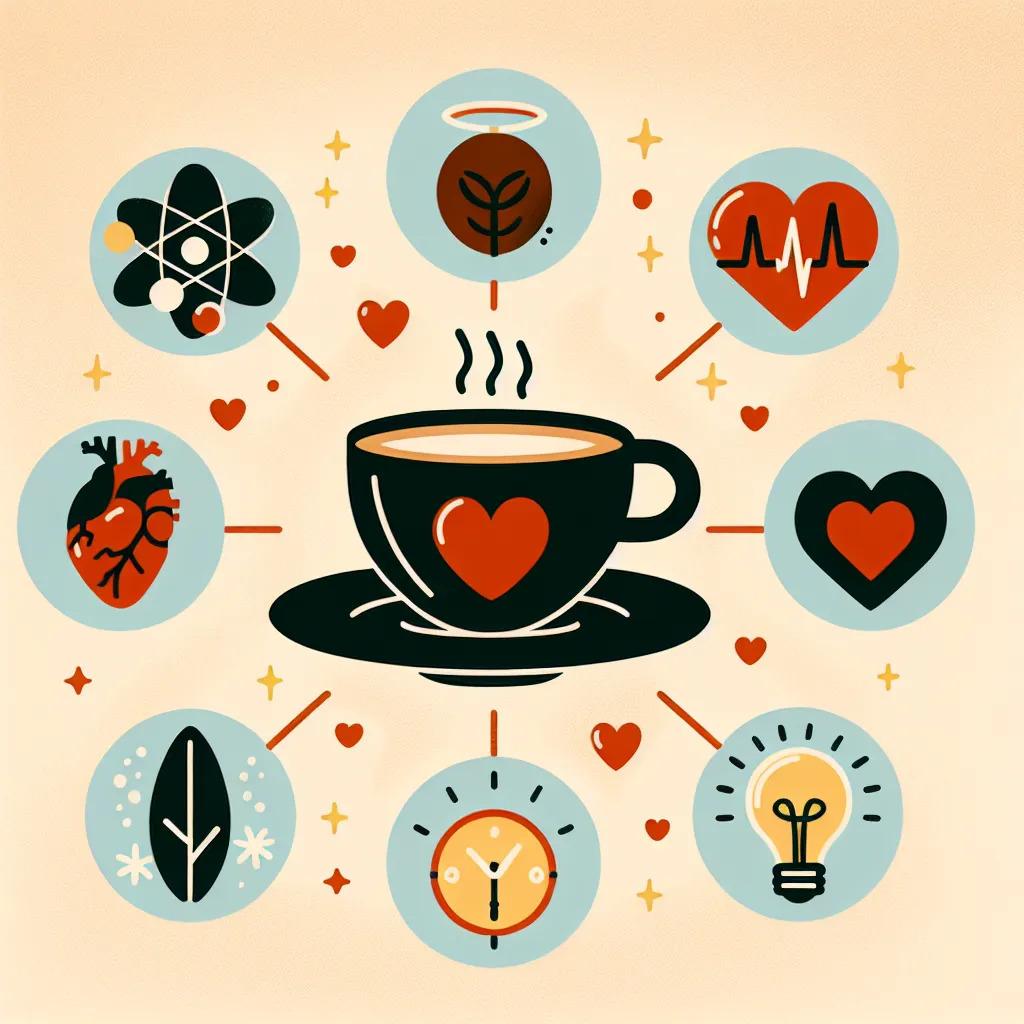In the bustling corridors of modern life, where the race against time often feels relentless, caffeine emerges as the unassuming hero for many. From the steaming cup of morning coffee to the energy drinks that line supermarket shelves, this ubiquitous stimulant is woven into the fabric of our daily routines. Touted for its ability to sharpen focus, heighten alertness, and propel us through demanding days, caffeine’s allure as a performance booster is undeniable. Yet, beneath its invigorating promise lies a complex narrative that invites closer scrutiny. Is caffeine truly the miraculous elixir we perceive it to be, or have we overstepped, leaning too heavily on its stimulating embrace? This article delves into the nuanced world of caffeine consumption, exploring whether our reliance on this potent compound has surpassed the boundaries of beneficial enhancement.
Caffeine and Performance Enhancement Exploring the Science Behind the Buzz
In recent years, caffeine has become a ubiquitous companion in our quest for enhanced performance, whether in athletics, academics, or everyday tasks. But is it truly the miracle booster it’s often made out to be? Scientifically, caffeine works by blocking adenosine receptors in the brain, which prevents drowsiness and increases alertness. This mechanism can indeed lead to improved focus and endurance, making it a popular choice for athletes and professionals alike. However, the effectiveness of caffeine as a performance enhancer can vary significantly based on individual tolerance and the nature of the task at hand.
While some studies suggest that moderate caffeine consumption can enhance physical endurance and cognitive functions, there are important considerations to keep in mind:
- Individual Variability: Not everyone experiences the same boost from caffeine. Genetic factors can influence how one’s body metabolizes caffeine, affecting its efficacy.
- Tolerance Build-Up: Regular consumption can lead to increased tolerance, reducing its performance-enhancing effects over time.
- Potential Side Effects: Overuse can lead to jitteriness, anxiety, and sleep disturbances, potentially hindering performance rather than helping it.
As such, while caffeine can be a useful tool for performance enhancement, it is essential to consider personal limits and the potential downsides of reliance on this popular stimulant.

Balancing Act Weighing the Benefits and Drawbacks of Caffeine Use
In the quest for heightened productivity and alertness, caffeine often takes center stage as a favored stimulant. Its benefits are widely acknowledged, providing that much-needed jolt of energy to kickstart a sluggish morning or power through an afternoon slump. Many appreciate caffeine for its ability to enhance focus and improve concentration, making it a staple in workplaces and study sessions alike. Additionally, it can offer temporary relief from fatigue and boost physical performance, making it a popular choice among athletes.
However, it’s crucial to consider the drawbacks that accompany its use. Over-reliance on caffeine can lead to a host of issues, including:
- Insomnia: Excessive intake, especially later in the day, can disrupt sleep patterns, leading to insufficient rest.
- Increased Anxiety: For some, caffeine can heighten feelings of nervousness and jitteriness.
- Dependence: Regular consumption may lead to a tolerance, requiring higher doses for the same effect, and potential withdrawal symptoms when not consumed.
- Digestive Issues: It can sometimes cause stomach upset or exacerbate acid reflux.
As with many things, moderation is key. Understanding the fine line between beneficial and excessive use can help individuals make informed decisions about their caffeine consumption, ensuring it serves as a helpful ally rather than a hindrance.

Beyond the Cup Alternative Strategies for Boosting Performance Naturally
In a world where the allure of caffeine is omnipresent, it’s time to explore the spectrum of natural performance enhancers that lie beyond the coffee bean. Embracing a more holistic approach to boosting energy and focus can lead to sustainable performance improvements without the inevitable crash. Here are some alternative strategies that are gaining traction:
- Mindful Nutrition: Fueling your body with a balanced diet rich in whole foods, including leafy greens, nuts, and lean proteins, can naturally enhance cognitive function and stamina.
- Adaptogens: These natural substances, like ashwagandha and rhodiola, are known to help the body adapt to stress and improve mental clarity.
- Hydration: Often overlooked, staying well-hydrated is crucial for maintaining energy levels and concentration.
- Physical Activity: Regular exercise, even in short bursts, can boost endorphins and enhance overall vitality.
- Mindfulness Practices: Techniques such as meditation and deep-breathing exercises can help reduce stress and improve focus.
By exploring these avenues, individuals can cultivate a performance-enhancing routine that is both effective and sustainable, reducing reliance on caffeine and its potential side effects.

Guidelines for Mindful Consumption Recommendations for Safe Caffeine Use
To harness the benefits of caffeine without falling into the trap of overconsumption, consider these mindful consumption strategies. Moderation is key; aim to limit your intake to no more than 400 milligrams per day, equivalent to about four cups of brewed coffee. Timing your caffeine intake can also make a difference. Consuming caffeine at least six hours before bedtime can help prevent sleep disturbances. Furthermore, listening to your body is crucial. Everyone metabolizes caffeine differently, so be aware of how it affects your energy levels and mood.
- Hydrate: Balance your caffeine consumption with plenty of water to stay hydrated.
- Mix it up: Alternate with non-caffeinated beverages to give your system a break.
- Choose quality: Opt for high-quality sources of caffeine like organic coffee or tea to minimize exposure to additives.
- Monitor tolerance: If you find yourself needing more caffeine to feel the same effects, consider taking a break to reset your tolerance.
